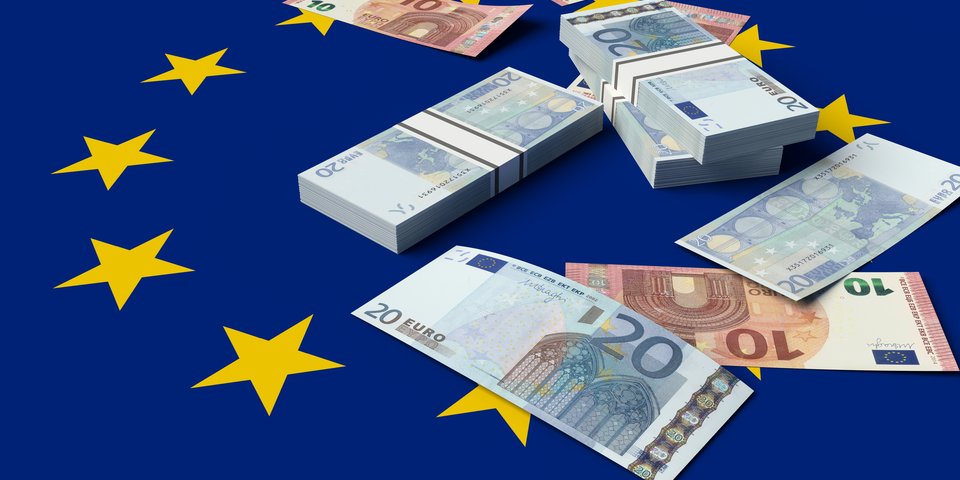 iStockphoto/Gil-Design
iStockphoto/Gil-DesignECB seeks appropriate monetary policy
Although the inflation rate is moving towards the target of 2 percent, the ECB has extended its programme of buying state bonds to combat deflation. Capital market phenomena that have never been experienced before, such as “penalty interest rates” on the equalisation reserves of social insurance funds, are disconcerting for citizens and companies.
GD/AD – 01/2017
The euro area inflation rate of around 1.1 percent (in Germany 1.7 percent) means that inflation has almost doubled from the previous month’s comparison of November 2016/2015. This is approaching the threshold of 2 percent inflation for the medium term set by the ECB in its efforts to combat deflation. As reported by the Frankfurter Allgemeine newspaper, this development has stimulated discussion on how long the ECB can maintain its monetary policy of buying trillions of Eurobonds beyond the provisional end date “after the German Bundestag elections” (September 2017). The bond-buying programme has recently been extended to the end of 2017 and the total volume has increased to a staggering 2,500 billion euro. According to repeated assertions by ECB President Mario Draghi, this is solely for the purpose of combating deflation. He has always rejected any idea of illegal funding of national budgets.
According to institutions with trade union affiliations such as the Macroeconomic Policy Institute (IMK), the euro area needs an expansive monetary policy for its “very survival”. Bourgeois forces are worried about the growing anger of small savers whose money in the bank is no longer yielding a return and is instead slowly devaluing due to inflation. An allocation of debt to “Europe” and its euro rescue system is for many people close at hand. The idea of negative yield (penalty interest rates) on the equalisation reserves of social insurance providers with inflation of 1.7 percent or more will not ease concerns. As is often the case, the interests of economic operators are more complex than presumed because “cheap money” fuels the stock market far beyond real business prospects. According to economists, inflation is not primarily a result of national economies “healing” – Italy is more unproductive than ever – but rather it is a result inter alia of the global increase in energy prices.
The ECB’s monetary policy gives the impression of economic recovery. However, this ignores the true root of the problem, namely that the over-indebtedness of most European Member States is getting worse. If the trillions of euros used to combat inflation were to run short, the banks would quickly go into a tailspin and realise that they could not hope for any serious help from their own country’s central bank in the event of a real emergency. Assumedly, without the financial means to “combat inflation”, in many countries things would have ended long ago. ECB President Draghi is giving governments euros as book money in an almost hopeless situation. If this ended more or less abruptly, the old problems would be thrust even more into the spotlight. ECB observers are asking questions: Which monetary policy instruments are economically appropriate and can they still achieve their goal? Which ones can be conveyed in political terms given current “populist tendencies”. What is the risk of being “addicted” to central bank money and would “withdrawal symptoms” threaten the economic stability of the eurozone?
